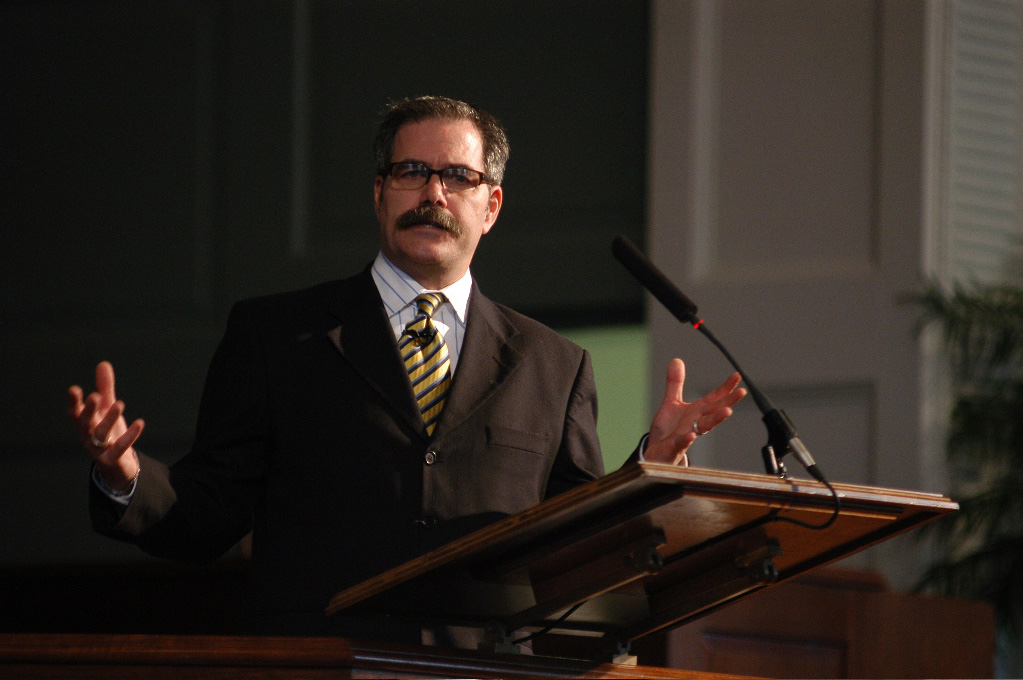
WAKE FOREST, N.C. (BP)–Paul Tripp asked students at Southeastern Baptist Theological Seminary, “Why are believers functioning below their potential?”
Tripp, president of the Christian Counseling and Education Foundation in Glenside, Pa., said many Christians do not realize their identity and potential in Christ and instead live lives of fruitlessness and ineffectiveness.
Peaching from 2 Peter 1:3-9 in a message at Southeastern’s Binkley Chapel Nov. 6, said believers should realize that “His divine power has granted to us everything pertaining to life and godliness.”
He added, “If these qualities are yours and are increasing, they render you neither useless nor unfruitful in the true knowledge of our Lord Jesus Christ.
“The Bible lays before me the awesome identity of Almighty God, and it roots my identity in Him. We all struggle with the sin that remains in us, but we need to understand and live out our identity in Christ.”
Tripp, who has been a biblical counselor for 30 years primarily to teenagers and their families, talked about the difference between the advice given by the world focused on self-improvement and that of the Bible focused on the Christian’s sense of identity in the life-giving power of Christ.
“It’s not just to give them new things to do, but to give them a sense of who they are,” Tripp said of the advice he gives struggling individuals. “If we reduce the Bible to a how-to book, we become a system like every other system out there, and we lose our effectiveness.”
In contrast, he said, once a believer sees that his power to overcome sin is derived from the death and resurrection of Christ, he sees himself as a person of potential for holiness and God-glorifying living.
“God has radically altered your potential,” Tripp said. “He has not just dropped down a list of regulations. He has sent Jesus Christ … and now I am a child of the King of Kings and Lord of Lords. There was a definitive redemptive act that dramatically changed your potential.”
He cautioned against the tendency for pastors and counselors to emphasize salvation past and eternity future, but fail to emphasize the potential a believer has for holiness today.
“We cannot just preach life after death,” Tripp said. “We need to preach life before death.”
Truly, he said, the life that the believer is offered is one of abundance and delight, one which can take on God’s very character and nature, reflecting in his conduct God’s own holy attributes.
“A fallen human being can become, because of the power of Christ, a partaker in the divine nature,” Tripp declared. “How’s that for living?”
But because believers often live with the wrong sense of identity, all too often they live with the kind of identity that magnifies their problems and thereby obscures the comparatively colossal power of grace at work in their lives.
“You’re phenomenally rich,” Tripp said. “Why would you live as if you’re poor?”
–30–

















